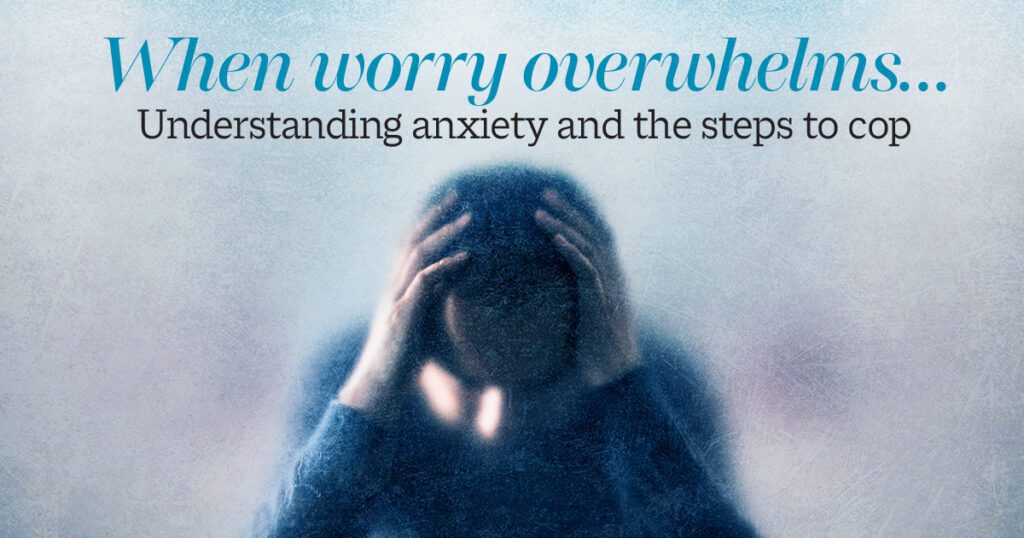08 Oct 2023 Understanding anxiety and the steps that can help you cope
Special Contribution by:
Tresvil G. Pack, Ph.D., CRC, LPC-S, BC-TMH
Anxiety is worry and fear that feels excessive and persistent. It occurs on a continuum, and everybody has some level of anxiety about things they encounter in life. It is completely normal to have some anxiety about stressful events like a public speaking engagement, meeting new people, sending your child off to camp or college or changing jobs.

We have seen an increase in the number of people experiencing excess anxiety since 2020. There are many reasons for this trend, including constant availability of information from both credible and suspect sources and living in a world that has recently experienced a pandemic. Anxiety becomes a problem to be addressed when it is about things we encounter on a regular basis and we are not able to adjust to those things. Some examples might be fear of failure in school for a full-time student or the fear of driving for a professional truck driver.
When fear and worry begin to consume a significant portion of our time and energy and the object of the fear is not a one-time event that will soon pass, it becomes problematic and interrupts life. As anxiety increases, all of life starts to feel out of control and overwhelming. Ideally, we want to start addressing anxiety before life starts to feel like it’s too much, but it is often the case that we, as humans, try to tough it out until we just can’t stand it any longer.
Some ways we can help ourselves when we encounter anxiety:
Physiological well-being
• Diet – Maintaining a healthy diet provides our bodies the fuel they need to function in the face of scary life events. Too many carbohydrates or sugars can heighten anxiety.
• Exercise – When we face things we fear, our bodies often get us ready to fight or flee from that thing. We produce cortisol and adrenaline, but in today’s world, most of us are not running from a bear in the woods, so we don’t finish the cycle started by the production of these stress hormones and they stay elevated in our systems. Exercise helps to burn off these stress chemicals produced in our bodies. Exercise also ensures our bodies are in better physical condition, so they operate more efficiently in the face of all of life’s circumstances.
• Sleep – Most humans need about eight hours of sleep each night to feel well-rested. If we get much more or less, then our bodies feel overly tired and don’t function as well. We want our bodies to function from a well-rested place when we are facing things that we fear or worry about.
Breath
• My favorite breathing exercise is box breathing. In box breathing, breathe in for four counts through the nose. Hold that breath for a four-count. Exhale through pursed lips for a four-count and hold for a four-count. Repeat this cycle for two to five minutes to gain the desired amount of relaxation. The entire thought process during box breathing is on counting to four. If we keep ourselves busy counting, we are not able to worry about the object of the fear.
Progressive Muscle Relaxation
• Before you begin your first attempt, make sure you are reclined in a chair or in a bed because some people go to sleep when using muscle relaxation.
• Begin at your toes and flex them for five seconds. Pay attention to what it feels like for your muscles to be flexed. Then relax your toes and pay attention to what relaxation feels like. Next, move up your body to your calves and repeat the flexion and relaxation cycle, paying attention to what it feels like to be flexed and to be relaxed. Repeat this cycle for every major muscle group in your body, ending with your face.
If you try the above techniques and still feel anxious, I recommend making an appointment with a mental health therapist. We have several options at Restored Life Counseling, and there are many other good options in Central Arkansas.









